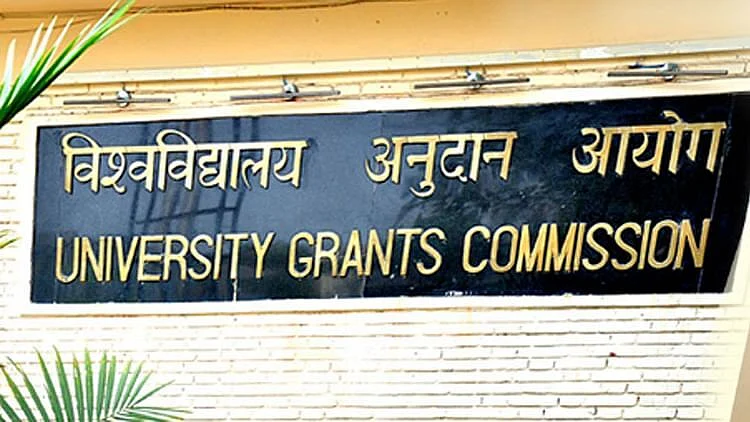Indian universities and higher education institutions will now be allowed to offer admissions twice a year on lines of foreign universities with the University Grants Commission giving a go ahead to the plan, UGC chief Jagadesh Kumar said.
Universities Will Be Allowed To Offer Admissions Twice A Year On Lines Of Foreign Varsities: UGC
The two admission cycles will be July-August and January-February from the 2024-25 academic session.

The two admission cycles will be July-August and January-February from the 2024-25 academic session.
"If Indian universities can offer admission twice a year, it will benefit many students such as those who missed admission to a university in the July-August session due to a delay in the announcement of board results, health issues, or personal reasons," Kumar told PTI.
"Biannual university admissions will help students maintain motivation since they do not have to wait one full year to be admitted if they miss admission in the current cycle. With biannual admissions in place, industries can also do their campus recruitment twice a year, improving employment opportunities for the graduates," he added.
The UGC chief explained that biannual admissions will also enable the higher education institutes (HEIs) to plan their resource distribution, such as faculty, labs, classrooms and support services, more efficiently, resulting in a better functional flow within the university.
"Universities worldwide already follow a biannual admission system. If Indian HEIs adopt the biannual admission cycle, our HEIs can enhance their international collaborations and student exchanges. As a result, our global competitiveness will improve, and we will align with the global educational standards," Kumar said.
"If HEIs adopt biannual admissions, they need to work on administrative intricacies, good planning for increased use of available resources, and providing seamless support systems for the smooth transition of students admitted at dissimilar times of the year. HEIs can maximize the usefulness of biannual admissions only when they sufficiently prepare faculty members, staff and students for the transition," he added.
Kumar, however, clarified that it will not be mandatory to offer biannual admissions for universities and those HEIs that have the required infrastructure and teaching faculty can utilise the opportunity.
"Offering biannual admissions will not be mandatory for the HEIs, it is the flexibility that UGC provides to the HEIs which want to increase their student intake and offer new programmes in emerging areas. To be able to admit students twice a year, HEIs must make suitable amendments to their institutional regulations," he said.
-
Previous Story
NIRF Rankings 2024: IIT Madras, IIM Ahmedabad Ranked Top Engineering, Management Colleges In India | Check Full NIRF Ranking List
- Next Story



















